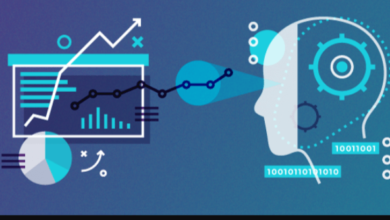What are the latest advancements in healthcare technology in the USA, and how are they improving patient care?

Healthcare technology in the USA has seen tremendous advancements in recent years, significantly impacting the quality of patient care. From cutting-edge diagnostic tools to innovative treatment methods and efficient health management systems, these technological breakthroughs are transforming the healthcare industry. This article delves into the latest advancements in healthcare technology and their profound effects on patient care in the USA.
Introduction
The healthcare industry is undergoing a significant transformation, driven by technological advancements that are reshaping patient care. These innovations are not only enhancing the efficiency and accuracy of medical procedures but also improving patient outcomes and overall healthcare experiences. This comprehensive article explores the most recent developments in healthcare technology in the USA and their impact on patient care.
Telemedicine: Bridging the Gap in Healthcare Access
Telemedicine has emerged as a vital tool in expanding healthcare access, particularly in remote and underserved areas. By leveraging video conferencing, remote monitoring, and mobile health apps, telemedicine enables patients to consult with healthcare providers without the need for physical visits. This advancement has been crucial during the COVID-19 pandemic, ensuring continuous care while minimizing the risk of virus transmission.
Artificial Intelligence in Healthcare: Revolutionizing Diagnostics and Treatment
Artificial intelligence (AI) is revolutionizing healthcare by enhancing diagnostic accuracy and treatment planning. AI-powered systems can analyze vast amounts of medical data to identify patterns and predict disease outcomes. For instance, AI algorithms are being used to detect early signs of diseases such as cancer, cardiovascular conditions, and neurological disorders, enabling timely intervention and personalized treatment plans.
Robotic Surgery: Precision and Minimally Invasive Procedures
Robotic surgery has transformed surgical procedures by providing unparalleled precision and control. Surgical robots, such as the da Vinci Surgical System, allow surgeons to perform complex operations through small incisions, reducing recovery times and minimizing complications. These advancements are particularly beneficial in delicate surgeries, including cardiac, neurological, and orthopedic procedures.
Wearable Health Technology: Continuous Monitoring and Personalized Care
Wearable health technology, including smartwatches and fitness trackers, has gained popularity for its ability to monitor vital signs and health metrics continuously. These devices provide real-time data on heart rate, physical activity, sleep patterns, and more, empowering individuals to take proactive steps in managing their health. For patients with chronic conditions, wearable devices enable remote monitoring and timely interventions.
Blockchain in Healthcare: Enhancing Data Security and Interoperability
Blockchain technology is addressing critical challenges in healthcare data management, including security and interoperability. By creating decentralized and immutable records, blockchain ensures the integrity and privacy of patient data. This technology facilitates secure sharing of medical information among healthcare providers, improving coordination and continuity of care.
3D Printing in Medicine: Customization and Innovation
3D printing is revolutionizing the production of medical devices and prosthetics, allowing for highly customized solutions. From printing biocompatible implants to creating patient-specific surgical models, this technology is enhancing precision and outcomes in various medical fields. Additionally, 3D printing is being explored for tissue engineering and regenerative medicine, potentially transforming organ transplantation.
Genomics and Personalized Medicine: Tailoring Treatments to Individuals
Advancements in genomics have paved the way for personalized medicine, where treatments are tailored to an individual’s genetic makeup. By analyzing a patient’s genetic profile, healthcare providers can predict disease risk, choose the most effective treatments, and minimize adverse reactions. This approach is particularly impactful in oncology, where targeted therapies are improving survival rates and quality of life.
Augmented Reality and Virtual Reality: Enhancing Medical Training and Patient Care
Augmented reality (AR) and virtual reality (VR) are transforming medical training and patient care. AR overlays digital information onto the physical world, aiding surgeons in complex procedures by providing real-time guidance. VR, on the other hand, offers immersive training environments for medical students and professionals, enhancing their skills and preparedness.
Internet of Medical Things (IoMT): Connectivity and Integration in Healthcare
The Internet of Medical Things (IoMT) refers to the interconnected network of medical devices and applications that collect and share data. This connectivity enhances the efficiency and effectiveness of healthcare delivery by enabling real-time monitoring, data analysis, and automated workflows. IoMT is instrumental in chronic disease management, remote patient monitoring, and hospital operations.
Precision Medicine: The Future of Treatment and Prevention
Precision medicine focuses on tailoring healthcare interventions to individual variability in genes, environment, and lifestyle. By considering these factors, healthcare providers can develop targeted prevention and treatment strategies, improving patient outcomes and reducing healthcare costs. Advances in genetic testing and biomarker identification are driving the growth of precision medicine.
Nanotechnology in Healthcare: Innovative Treatments at the Molecular Level
Nanotechnology is opening new frontiers in medicine by enabling treatments at the molecular and cellular levels. Nanoparticles are being used for targeted drug delivery, improving the efficacy and reducing the side effects of treatments. Additionally, nanoscale materials are being explored for diagnostic purposes, such as detecting biomarkers for early disease detection.
Big Data Analytics: Driving Insights and Improving Outcomes
Big data analytics is transforming healthcare by enabling the analysis of vast amounts of data to uncover trends, predict outcomes, and improve decision-making. By integrating data from electronic health records, wearable devices, and other sources, healthcare providers can gain valuable insights into patient health and treatment effectiveness. This data-driven approach is enhancing personalized care and population health management.
Electronic Health Records (EHRs): Streamlining Patient Information
Electronic Health Records (EHRs) have revolutionized the way patient information is stored, accessed, and shared. EHRs provide a comprehensive and up-to-date view of a patient’s medical history, improving the accuracy of diagnoses and treatment plans. These digital records facilitate seamless communication among healthcare providers, enhancing care coordination and reducing medical errors.
CRISPR and Gene Editing: Potentially Curing Genetic Diseases
CRISPR technology, a powerful tool for gene editing, holds the potential to cure genetic diseases by directly modifying the DNA. Researchers are exploring its applications in treating conditions such as sickle cell anemia, cystic fibrosis, and muscular dystrophy. While still in the experimental stages, CRISPR offers promising prospects for transforming the treatment of genetic disorders.
Remote Patient Monitoring: Continuous Care Outside the Hospital
Remote patient monitoring (RPM) involves the use of digital technologies to monitor patients’ health status outside traditional healthcare settings. RPM devices collect and transmit data on vital signs, enabling healthcare providers to track patients’ conditions in real-time. This approach is particularly beneficial for managing chronic diseases, reducing hospital readmissions, and improving patient outcomes.
Mobile Health Apps: Empowering Patients and Enhancing Engagement
Mobile health apps are empowering patients by providing easy access to health information, tools for self-monitoring, and platforms for communication with healthcare providers. These apps support a wide range of functions, from tracking medication adherence to managing chronic conditions. By enhancing patient engagement and self-management, mobile health apps contribute to better health outcomes.
Regenerative Medicine: Repairing and Replacing Damaged Tissues
Regenerative medicine focuses on repairing and replacing damaged tissues and organs using advanced techniques such as stem cell therapy and tissue engineering. These approaches hold the potential to treat conditions that currently have limited treatment options, such as spinal cord injuries and heart disease. Regenerative medicine is paving the way for innovative therapies that restore function and improve quality of life.
Advanced Imaging Technologies: Enhancing Diagnostics and Treatment
Advances in imaging technologies, such as magnetic resonance imaging (MRI), computed tomography (CT), and positron emission tomography (PET), are enhancing the accuracy and speed of diagnostics. These technologies provide detailed images of the body’s internal structures, enabling early detection and precise treatment of various conditions. Innovations like functional MRI (fMRI) are also advancing our understanding of brain function and disorders.
Cybersecurity in Healthcare: Protecting Patient Data
As healthcare systems become increasingly digital, the importance of cybersecurity in protecting patient data cannot be overstated. Advanced security measures, such as encryption and multi-factor authentication, are essential in safeguarding sensitive information from cyber threats. Ensuring the security and privacy of patient data is critical in maintaining trust and compliance with regulatory standards.
Bioinformatics: Integrating Biological Data for Better Insights
Bioinformatics combines biology, computer science, and information technology to analyze and interpret biological data. This field is instrumental in advancing genomics, personalized medicine, and drug discovery. By integrating diverse data sets, bioinformatics enables researchers to uncover new insights into disease mechanisms and develop targeted therapies.
FAQs
What is the impact of telemedicine on patient care? Telemedicine has significantly improved patient care by providing remote access to healthcare services, reducing the need for in-person visits, and ensuring continuous care, especially during the COVID-19 pandemic.
How does AI enhance diagnostic accuracy? AI enhances diagnostic accuracy by analyzing large datasets to identify patterns and predict disease outcomes, leading to early detection and personalized treatment plans.
What are the benefits of robotic surgery? Robotic surgery offers benefits such as increased precision, smaller incisions, reduced recovery times, and fewer complications, making it ideal for complex procedures.
How do wearable health devices improve patient care? Wearable health devices provide continuous monitoring of vital signs and health metrics, enabling proactive health management and timely interventions for chronic conditions.
What role does blockchain play in healthcare? Blockchain enhances data security and interoperability in healthcare by creating decentralized and immutable records, facilitating secure sharing of medical information among providers.
How is genomics transforming personalized medicine? Genomics transforms personalized medicine by enabling the development of targeted treatments based on an individual’s genetic profile, improving treatment effectiveness and reducing adverse reactions.
Conclusion
The latest advancements in healthcare technology in the USA are revolutionizing patient care by improving diagnostic accuracy, treatment efficacy, and health management. From telemedicine and AI to wearable devices and regenerative medicine, these innovations are enhancing the quality of care and patient outcomes. As technology continues to evolve, the future of healthcare promises even greater improvements, ultimately leading to a healthier and more connected world.





